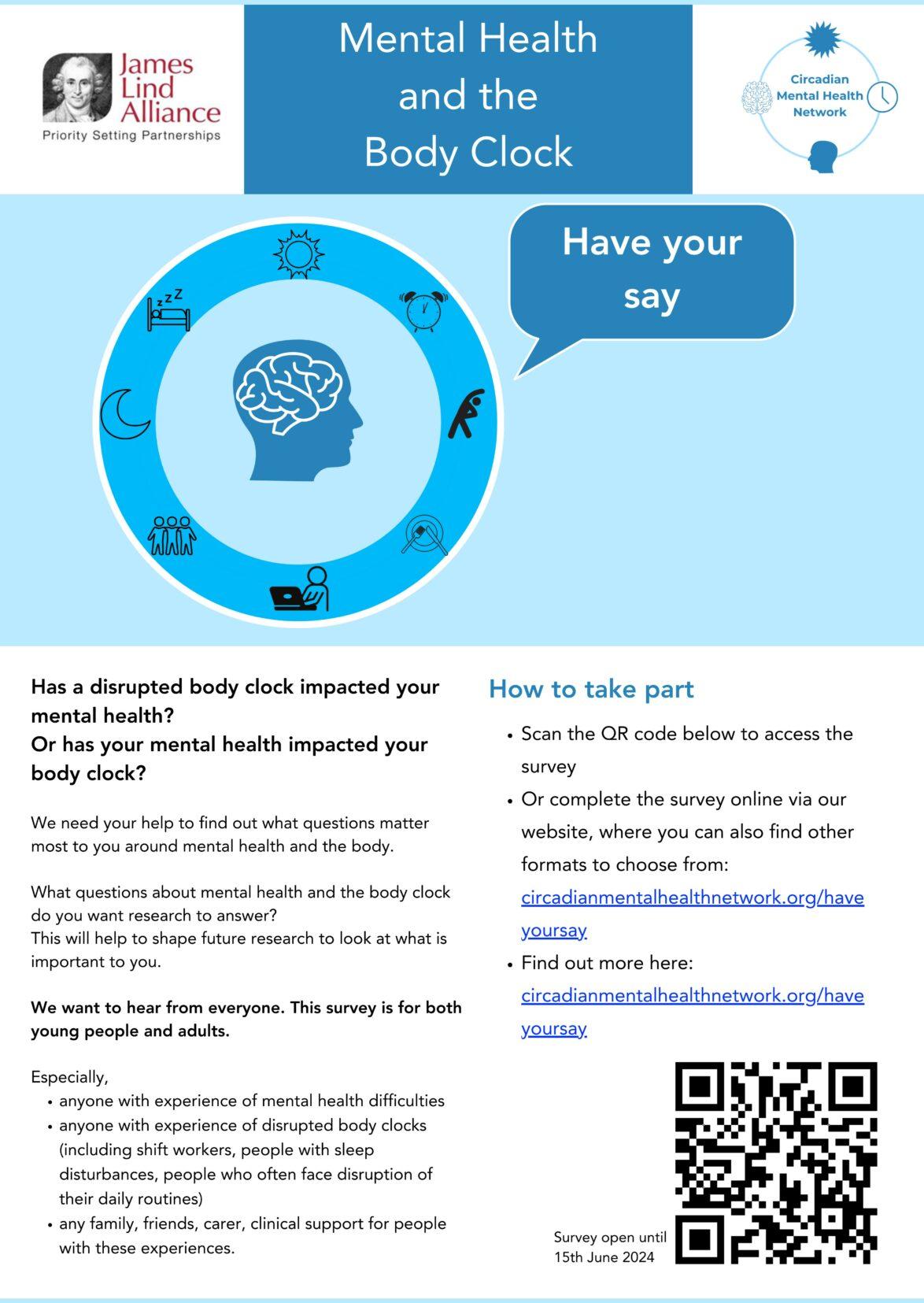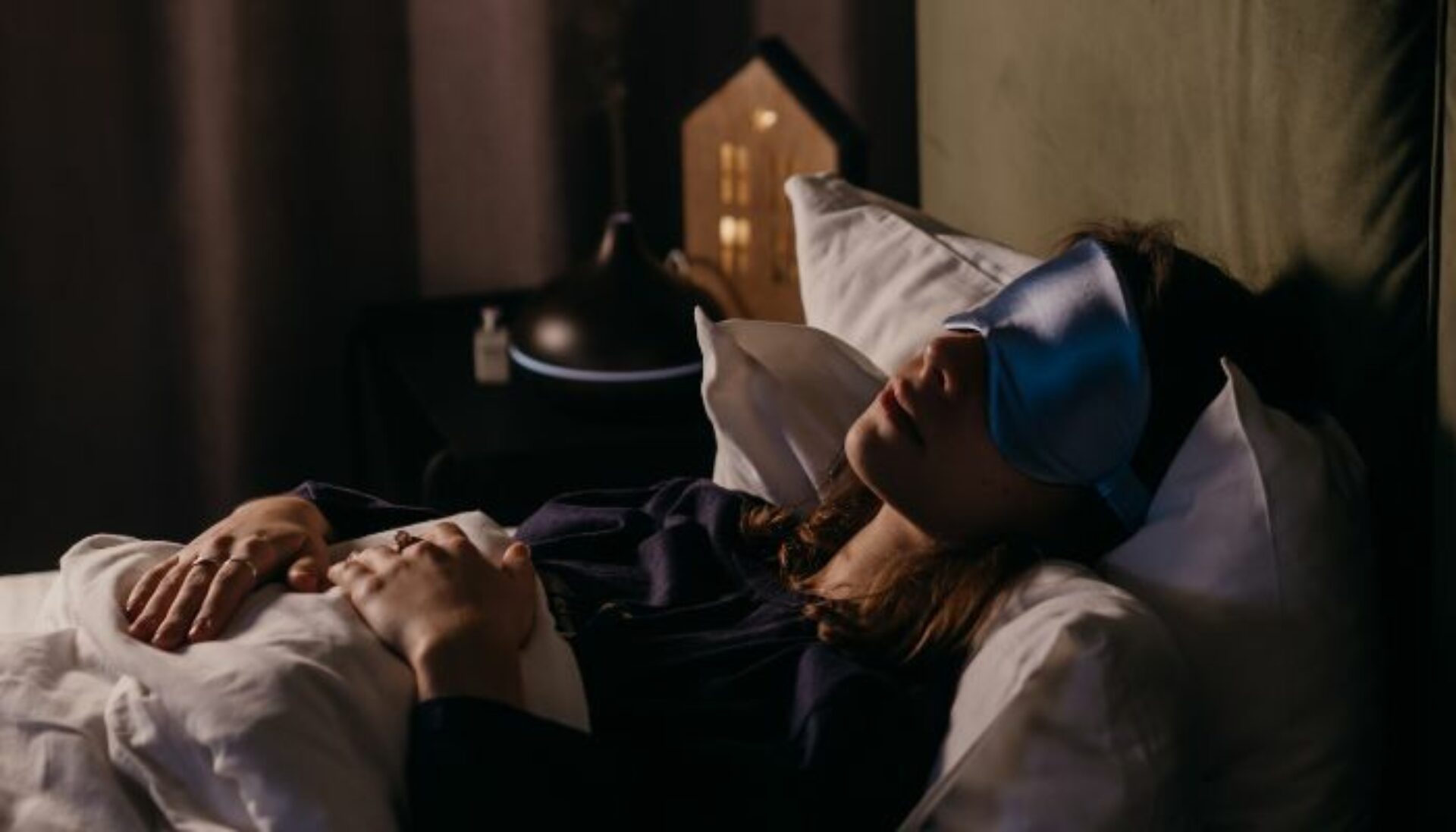To mark World Sleep Day, and as a new sleep and mental health survey launches, we asked members of a sleep and circadian rhythms Lived Experience Advisory Panel why they think sleep and mental health go hand-in-hand. Today in the first blog we hear from Candy.
The connection between sleep and good mental health is being talked about more – but where should research focus next?
This is the central question of a new project which brings together a network of experts (researchers, clinicians, service-users and young people) on sleep, circadian rhythms and mental health to discuss this, and lots more.
To get the project started, a new survey has been launched. We want to hear about your experiences of mental health and your body clock – to take part and share your thoughts find out more here.
By sharing what you feel is most important about mental health and the body clock, your thoughts will steer the direction of future research in this area.
In the meantime, here is the first of the project’s Lived Experience Advisory Panel (LEAP) talking about the importance of, and link between, sleep and mental health.
After several years of switching between night shifts and early shifts on a weekly basis, my sleep patterns were completely off kilter, and my depressions got deeper as I became more and more exhausted.
Candy
Everyone knows how bad you can feel during a period of insomnia or even after just one bad night’s sleep. But when you’re already dealing with mental health difficulties, the effects of a disrupted body clock can feel particularly hard to cope with.
I started experiencing problems with my mental health in adolescence, but when I began working shifts at the start of my career in IT, in my early twenties, my moods and emotions took a turn for the worse.
After several years of switching between night shifts and early shifts on a weekly basis, my sleep patterns were completely off kilter, and my depressions got deeper as I became more and more exhausted.
Paradoxically, after a period of getting very little sleep I experienced my first hypomanic episode, where I felt full of energy and wildly euphoric, convinced I could get by on no sleep at all!
Many years later I was diagnosed with a form of bipolar disorder and learned that a lack of sleep can trigger an episode – or is it that an episode of bipolar triggers the lack of sleep?
When I finally changed roles and found myself in a new job that required me to work from 9am to 5pm I found my brain couldn’t adjust to working all day and sleeping at night and I was signed off sick and eventually had to leave my job because I couldn’t stay awake at my desk.
There are still so many questions for research to reveal the answers to.
At that point I went to live in Paris for several years, which might sound very exciting, but in fact I spent some of those years sleeping all day and staying awake all night, feeling isolated and depressed.
Finally I managed, through a painful process of going to bed an hour later every night, to get my body clock back into a relatively normal day/night wake/sleep pattern.
I wish I had known then what research has more recently revealed about the effects of exposure to morning and evening daylight (and blue light) and the timing of meals and physical activity on the body clock.
There are still so many questions for research to reveal the answers to, which is why I am so interested in this project and so happy to be involved.

The survey is open until 15th June 2024. Find out more about the project here and take part in the survey here.
Read the other blogs from our Circadian Rhythms Network project:
